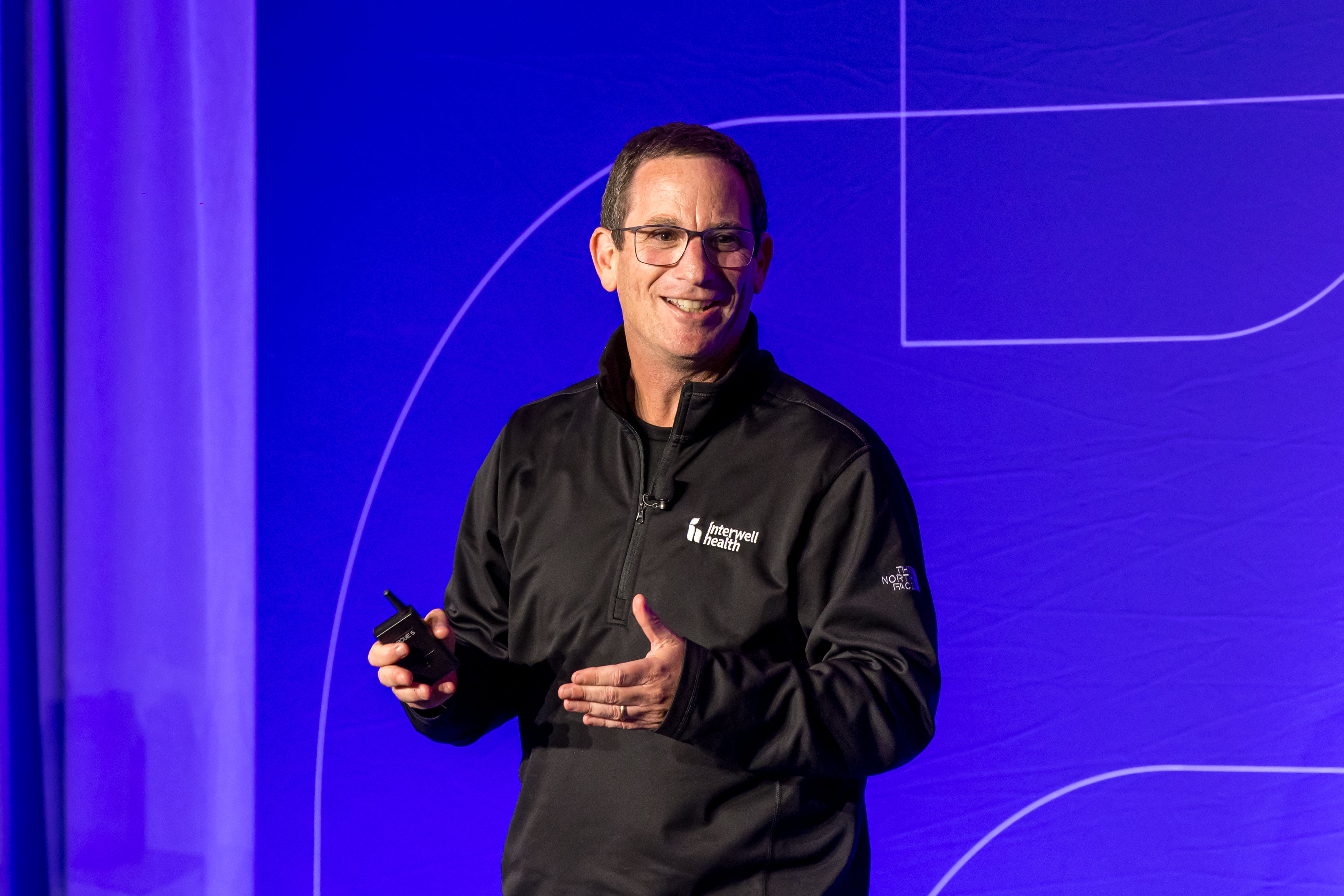Working Effectively in a Remote World
Interwell Health President and Chief Operating Officer David Pollack explains how his many years of remote work management have helped him understand what strategies work to improve team engagement and productivity.
tags

In today’s increasingly digital workplace, remote teams are no longer the exception; they’ve become the norm in many industries. But managing a team remotely in a specialized and rapidly evolving industry like value-based care brings both unique challenges and tremendous opportunities. As president and COO of Interwell Health, it’s my responsibility to ensure we implement strategic initiatives that drive efficiency, strengthen communication, and empower team members to deliver exceptional results.
Having worked remotely for nearly a decade, I’ve learned that success in this environment isn’t just about adapting how we perform daily tasks. It’s about intentionally fostering clarity, efficiency, and connection to build high-performing remote teams.
The importance of clarity in remote teams
One of the most significant challenges of remote work is alignment. Without informal hallway chats or quick deskside conversations, aligning everyone to shared objectives can be difficult. Early in my experience as a remote manager, I underestimated how vital it is to have clarity on set goals. Without a shared sense of purpose, priorities became muddled, and productivity lagged.
Now, I’ve adopted a laser-focused approach to alignment. At the start of each year, the Interwell leadership team works together to establish clear organizational goals and sub-goals. These serve as a guiding compass for all decision-making and daily operations. We clearly communicate these goals and reinforce them through every meeting, email, and discussion. Clarity doesn’t just keep projects on track—it energizes the team and builds momentum.
Key strategies for managing remote teams in healthcare
Remote efficiency starts with small, intentional habits. To manage effectively in healthcare’s fast-paced and highly regulated environment, these are some of the key strategies that I've found work well:
- Structured governance: Remote teams thrive on structure. Adopting a formal approach to governance—including scheduled meeting cadences, set agendas, and written follow-ups with assigned action items—is essential. This structure ensures accountability and allows the team to stay focused on goals, even amid the complexities of healthcare delivery.
- Dedicated workspaces: A distinct workspace fosters productivity and reinforces boundaries between professional and personal life. Whether it’s a dedicated home office or a simple desk setup, having a physical space “just for work” signals when it’s time to focus.
- Prioritize tasks: Healthcare professionals are no strangers to juggling demands. I maintain a daily list of priorities and revisit it multiple times throughout the day. If an activity or meeting doesn’t align with my objectives, I evaluate whether it’s the best use of my time. Optimizing how you spend every hour ensures your focus remains on high-impact work.
- Communication is always key: Clear, deliberate communication in a remote setting is non-negotiable. I don’t assume alignment happens organically. I check in regularly with team members, ensuring they understand their roles and helping solve roadblocks along the way.
These seemingly simple habits can create a ripple effect, improving not only productivity but also overall team morale and job satisfaction.
Human connection in a virtual world
While day-to-day operations are critical, we can’t forget the human side of remote work. After all, healthcare is built on connection and collaboration. Working remotely allows us to harness the unique experiences and perspectives of our employee base spread across the U.S., including Puerto Rico. This geographic and cultural diversity enriches our team dynamics, fosters innovative solutions, and ensures we can better understand and serve the healthcare needs of a wide array of communities.
That’s why staying intentional about nurturing these relationships can make all the difference.
I like to start meetings with a moment of levity or casual conversation. I ask team members how they’re doing or swap weekend stories. These interactions help maintain a sense of camaraderie, even if you’re thousands of miles apart. I also prioritize brief 10-15-minute calls when possible, replacing long email chains or Slack threads to add a personal touch.
Finally, in-person interactions—even if infrequent—remain vital in remote environments. Organizing annual or quarterly meetups can foster deeper relationships and remind everyone of our shared mission.
“Working remotely allows us to harness the unique experiences and perspectives of our employee base spread across the U.S., including Puerto Rico. This geographic and cultural diversity enriches our team dynamics, fosters innovative solutions, and ensures we can better understand and serve the healthcare needs of a wide array of communities.”
Achieving excellence in remote healthcare teams
Thriving in the remote healthcare world is about more than technology or logistics. It requires deliberate focus on what drives alignment, fosters focus, and builds human connection. Remember, remote work is not just a challenge to overcome; it’s an opportunity to innovate and refine our professional practices for the better. By implementing these strategies, healthcare professionals can lead teams that are not only efficient but also collaborative and mission driven. The result? Better patient outcomes, higher employee satisfaction, and a more resilient organization.

David Pollack
President & Chief Operating Officer
David has more than 30 years of experience in finance and managed care operations. Prior to his role as President and Chief Operating Officer of Interwell Health, David served as president of the Integrated Care Group at Fresenius Medical Care North America, chief executive officer for Aetna Florida Medicaid, and senior vice president at Molina Healthcare.